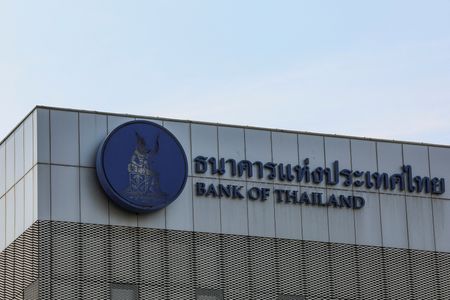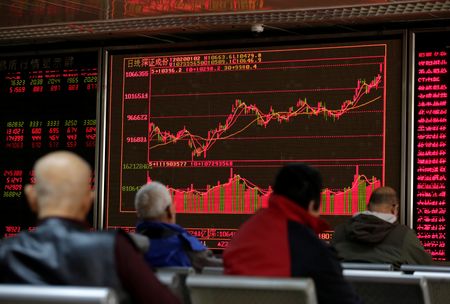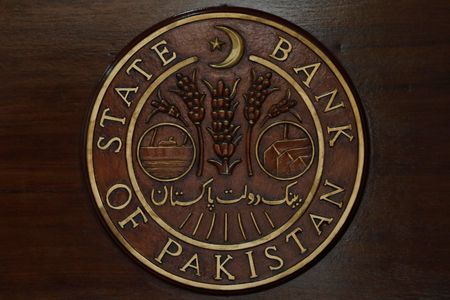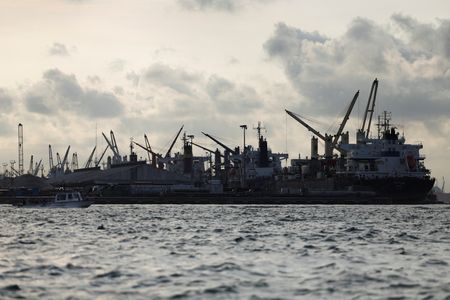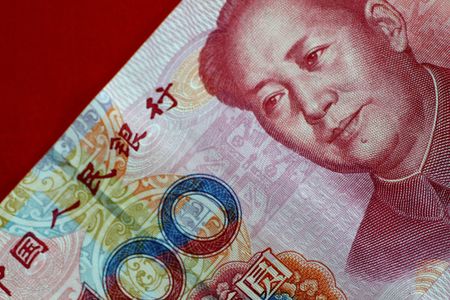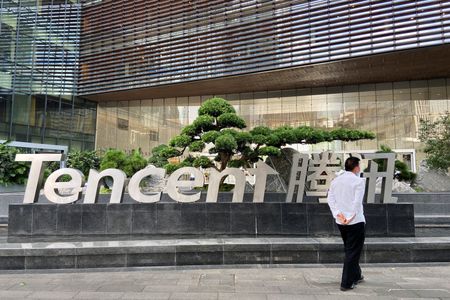By Orathai Sriring and Kitiphong Thaichareon
BANGKOK (Reuters) -Thailand’s central bank lowered its policy rate to a near three-year low on Wednesday to boost a slowing economy grappling with U.S. tariffs, falling prices and weak foreign tourist arrivals, with further policy easing seen later this year.
As widely expected, the monetary committee unanimously cut the one-day repurchase rate by 25 basis points to 1.50%, the lowest since late 2022. It was the fourth reduction in 10 months.
The economy was expected to expand this year and next, close to earlier assessments of 2.3% and 1.7%, respectively, but U.S. trade policies would exacerbate structural problems and weaken competitiveness, with small businesses especially vulnerable, the Bank of Thailand said.
“The committee views that monetary policy should be accommodative going forward to support the economy,” it said.
This year’s growth forecast has some upside from a surge in exports, assistant governor Sakkapop Panyanukul told a press conference after Wednesday’s decision.
Exports, a key growth driver, grew 15% annually in first six months of 2025 as shippers raced to beat U.S. tariffs, but higher U.S. levies on most trading partners went into effect on August 7, with those on Thai imports set at 19%.
The economy will slow in the second half, although there is little chance of a technical recession – or two consecutive quarterly contractions, Sakkapop added.
The central bank is ready to ease further if the economy faces severe shocks, he said.
“Weak economic growth remains the main reason for expecting more easing,” said Gareth Leather, senior Asia economist at Capital Economics, said in a note, predicting a further 50 basis-point cuts by the end of the year.
Southeast Asia’s second-largest economy also has struggled with weak consumption and high household debt, with analysts expecting rate reductions at reviews in October and December.
Wednesday’s meeting was the last for Governor Sethaput Suthiwartnarueput. New Governor Vitai Ratanakorn, widely seen as dovish, will take over in October, and he has said rate cuts will support growth.
“Led by the new BoT Governor, we expect the BoT to deepen its easing cycle further, cutting the policy rate to 1.00% by 1Q 2026,” HSBC economist Aris Dacanay said in a note.
Kobsidthi Silpachai, head of Capital Markets Research at Kasikornbank, expects a further cut in December.
Sakkapop also said that the central bank will ensure that the baht currency moves in line with economic fundamentals.
The baht reversed course to fall 0.1% after the announcement, while Thai stocks extended gains after the decision.
Finance Minister Pichai Chunhavajira said the rate cut will boost liquidity and help exporters by weakening the baht, which has firmed more than 6% against a softening U.S. dollar so far this year.
In June, the BOT predicted 2025 economic growth of 2.3%, with export growth of 4%, after factoring in U.S. tariff rates of 18%. The economy expanded 2.5% last year, lagging peers.
There are still uncertainties relating to U.S. tariffs on transshipments via Thailand from third countries.
The United States was Thailand’s biggest export market last year, accounting for 18.3% of total shipments, with a value of $55 billion.
Consumer prices in July fell 0.7% from a year earlier, down for a fourth consecutive month, and below the central bank’s target range of 1% to 3% for the fifth consecutive month.
Headline inflation was subdued because of supply-side factors but there are no signs of deflation yet, Sakkapop said.
In June, the central bank predicted headline inflation of 0.5% this year, with the core rate seen at 1%.
Adding to the challenges is renewed political turmoil that could bring down Prime Minister Paetongtarn Shinawatra or the coalition government led by her Pheu Thai party.
(Reporting by Orathai Sriring, Kitiphong Thaichareon, Thanadech Staporncharnchai, Chayut Setboonsarng; Editing by Martin Petty, Jacqueline Wong and Kim Coghill)

